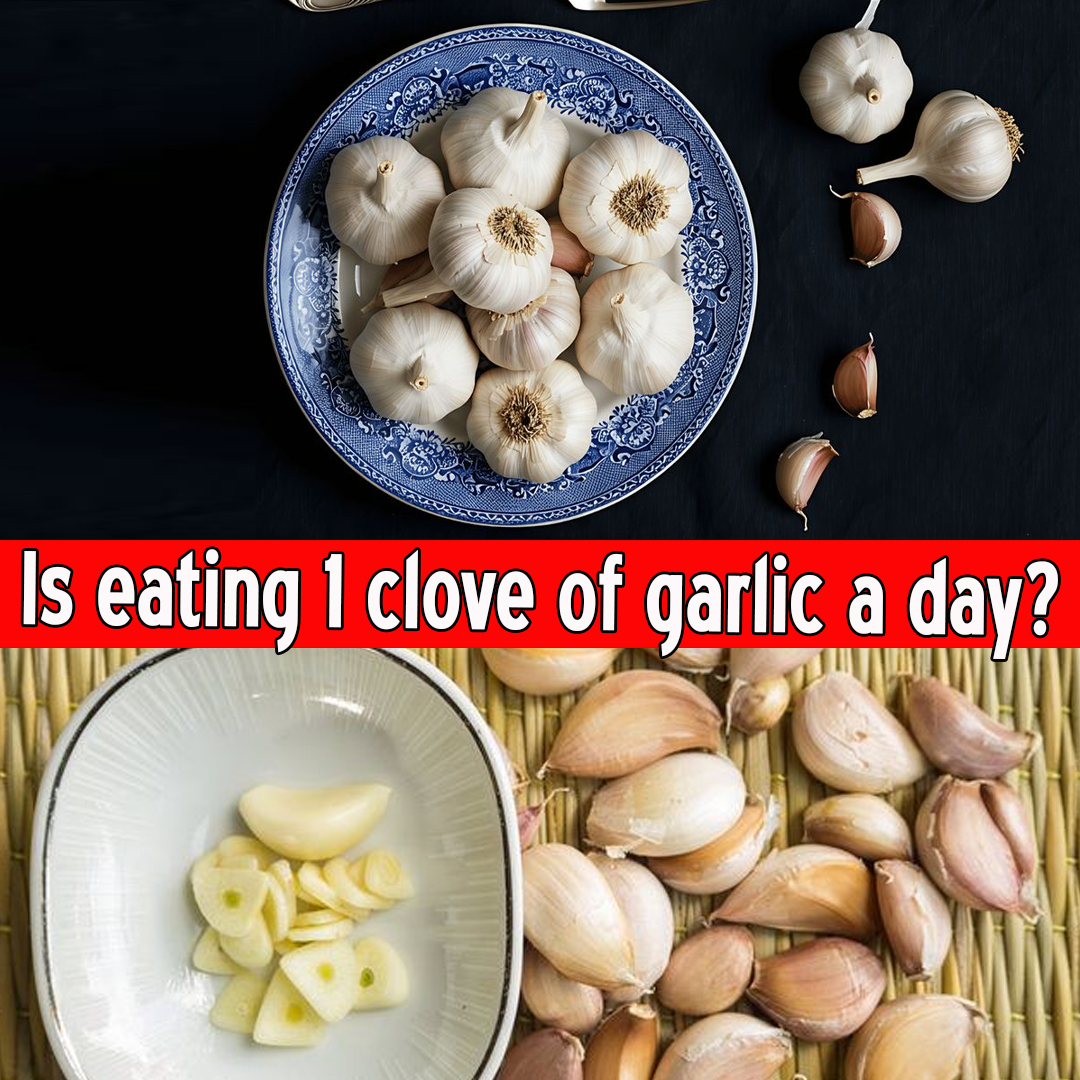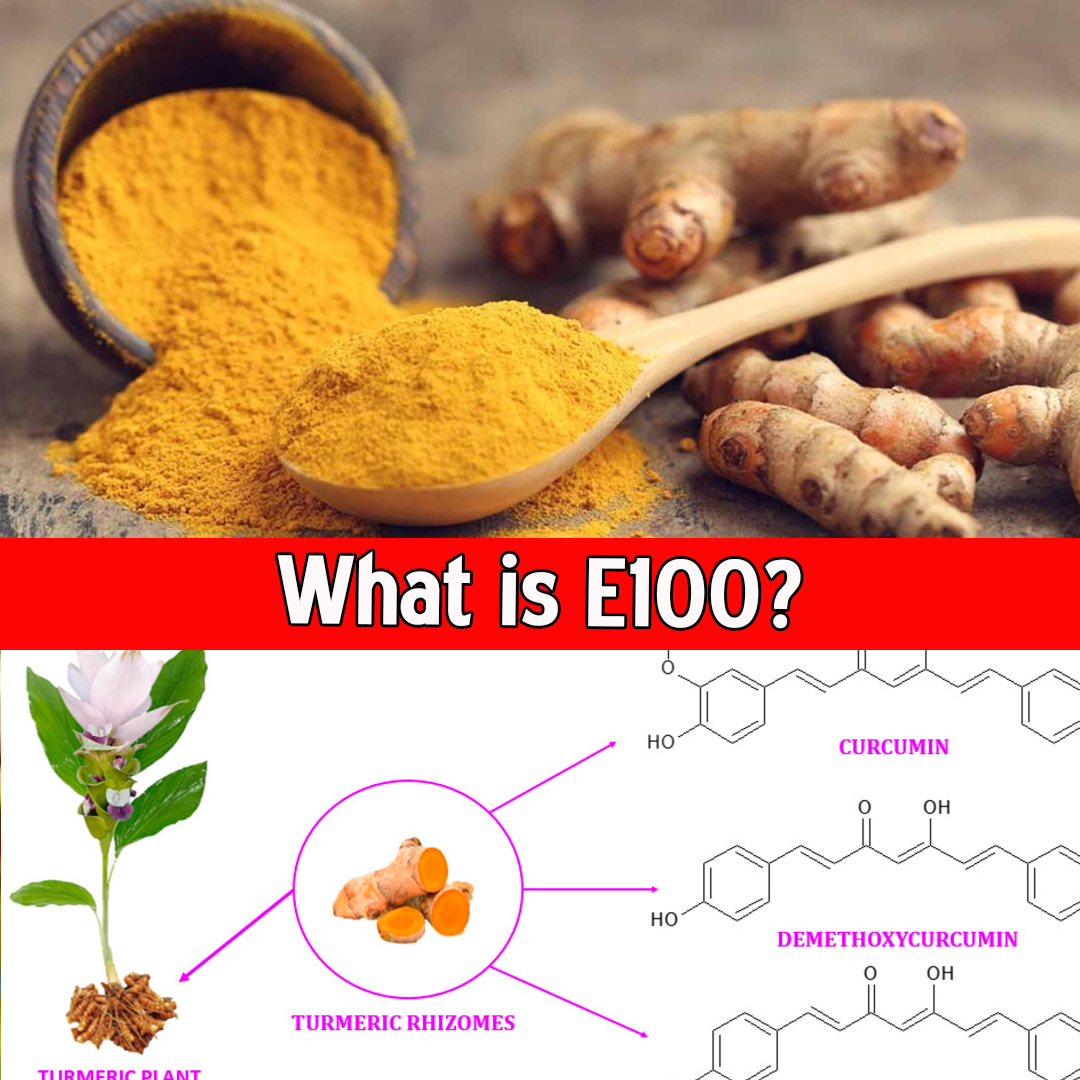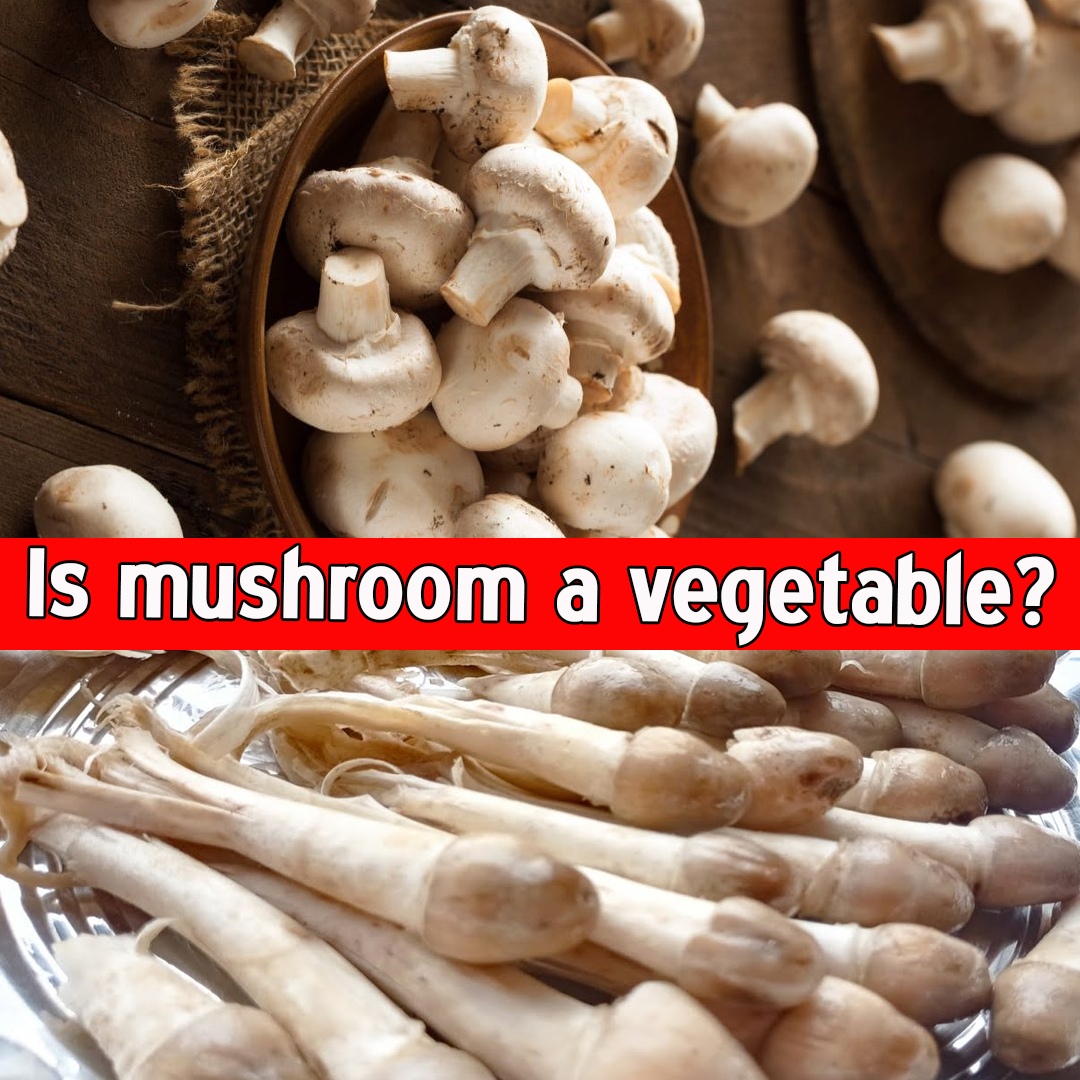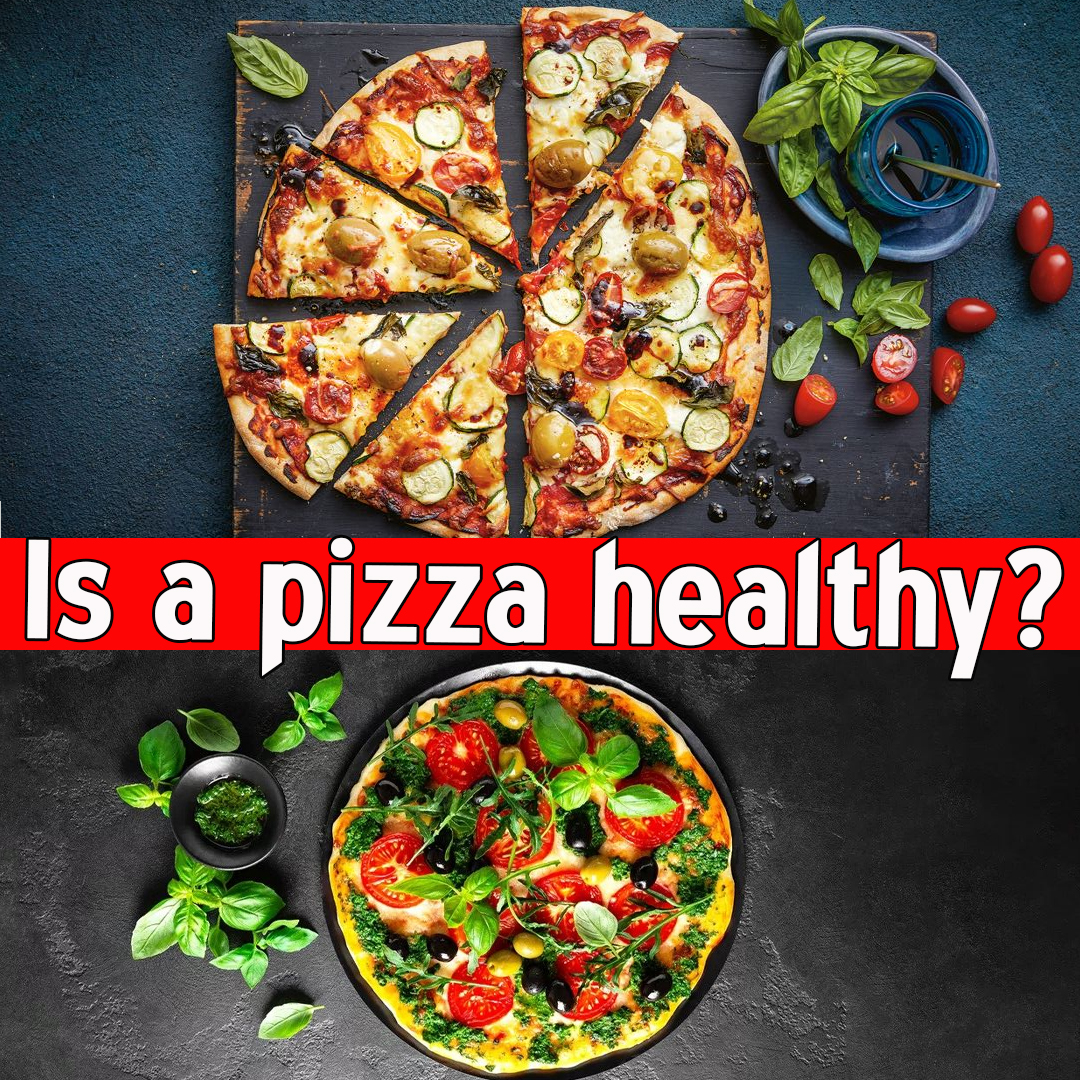Is Eating 1 Clove of Garlic a Day Good for You?
Garlic has been a staple in culinary and medicinal traditions for thousands of years. Revered for its potent flavor and even more powerful health benefits, it’s often recommended in various wellness circles to consume garlic regularly—some even advocate eating 1 clove of garlic a day.

Is eating 1 clove of garlic a day?
But is this daily ritual genuinely beneficial? What happens when you eat one clove of garlic a day? Let’s explore the science, benefits, possible side effects, best ways to consume it, and who should or shouldn’t follow this habit.
What Is Garlic?
Garlic (Allium sativum) belongs to the onion family, alongside shallots, leeks, and chives. It has been used both as a food and as a medicine in Ancient Egypt, Greece, China, and India.
A single garlic bulb typically contains 10–12 cloves. When crushed or chopped, garlic produces a sulfur compound called allicin, which is responsible for many of its health benefits.
Nutritional Profile of 1 Garlic Clove
Though small, a clove of garlic is packed with nutrients. On average, one raw garlic clove (about 3 grams) contains:
- Calories: 4.5 kcal
- Carbohydrates: 1 gram
- Protein: 0.2 grams
- Vitamin C: 1% of the RDI
- Manganese: 1% of the RDI
- Vitamin B6: 2% of the RDI
- Selenium: Trace amounts
- Fiber: 0.06 grams
It also contains other plant compounds, including flavonoids and saponins.
Top 10 Health Benefits of Eating 1 Clove of Garlic Daily
1. Boosts Immunity
Garlic is known for its immune-boosting properties. Regular consumption enhances white blood cell production and strengthens the body’s response to pathogens. One clove a day may help reduce the duration and severity of colds and flu.
Studies: A 12-week study found that garlic supplementation reduced the number of colds by 63% compared to a placebo.
2. Regulates Blood Pressure
Garlic has vasodilatory effects, which means it helps relax blood vessels, improving blood flow and lowering blood pressure.
Scientific Insight: Several studies show that garlic supplements can significantly reduce blood pressure in people with high BP. The effect of one raw clove daily may not match a supplement but still contributes positively.
3. Lowers Cholesterol Levels
Garlic helps reduce total and LDL (bad) cholesterol while slightly improving HDL (good) cholesterol levels. This can help reduce the risk of cardiovascular disease.
Note: For full effectiveness, consistency is key, which is why daily intake is recommended.
4. Acts as a Natural Antibiotic
Garlic has antimicrobial, antifungal, and antiviral properties. Allicin and other sulfur compounds combat pathogens such as E. coli, Candida, and even some strains of Staphylococcus.
Traditional Wisdom: Many cultures have used garlic to treat wounds, infections, and foodborne illnesses.
5. Supports Gut Health
Garlic acts as a prebiotic, feeding beneficial gut bacteria and improving digestion. It may also reduce bloating and support bowel regularity.
6. Reduces Risk of Certain Cancers
Garlic is rich in antioxidants that combat oxidative stress and DNA damage. Studies link regular garlic consumption to reduced risk of colorectal, stomach, and prostate cancer.
Mechanism: The sulfur compounds in garlic help neutralize carcinogens and inhibit tumor growth.
7. Improves Brain Health
Allicin and antioxidants found in garlic help protect the brain against neurodegenerative diseases like Alzheimer’s and dementia by reducing oxidative stress and inflammation.
Research: Preliminary studies suggest garlic improves memory and cognitive function.
8. Helps with Detoxification
Garlic enhances liver function by increasing the production of detoxifying enzymes and reducing heavy metal levels in the blood, especially lead and mercury.
9. Manages Blood Sugar Levels
Garlic improves insulin sensitivity and may help regulate fasting blood glucose levels, especially beneficial for people with prediabetes or Type 2 diabetes.
10. Supports Healthy Skin and Hair
The antibacterial properties of garlic help prevent acne, and its antioxidant profile supports collagen production. It may also improve hair growth due to its sulfur content.
Best Ways to Eat 1 Clove of Garlic a Day
1. Raw Garlic (Most Potent)
- Crush or chop the clove and let it sit for 10–15 minutes to activate allicin.
- Swallow it with warm water or mix it with honey to reduce the intensity.
Pros: Maximum allicin
Cons: Strong odor and possible stomach upset
2. Cooked Garlic
- Add to soups, curries, sauces, stir-fries, or roasted dishes.
Pros: More palatable
Cons: Heat destroys allicin, reducing potency
3. Garlic Tea or Tonic
- Boil chopped garlic with lemon and honey for a health-boosting tea.
4. Garlic Oil or Supplements
- Use garlic oil for cooking or apply topically for skin conditions.
- Garlic capsules are ideal for those who dislike the smell.
When Is the Best Time to Eat Garlic?
- Morning on an empty stomach: Maximizes absorption and effect.
- With meals: Milder and easier to tolerate.
- Before bedtime: Some believe it helps with digestion and immunity.
Possible Side Effects of Eating 1 Clove Daily
Although garlic is generally safe, some people may experience:
- Bad Breath (Garlic breath or body odor due to allicin)
- Heartburn or Gastric Irritation
- Allergic Reactions (rash, headache, wheezing)
- Bleeding Risk (Garlic acts as a natural blood thinner; consult a doctor if on anticoagulants)
- Interaction with Medications (especially blood pressure or diabetes meds)
- Digestive Issues (bloating, gas in sensitive individuals)
Who Should Avoid Raw Garlic?
- People with ulcers, IBS, or acid reflux
- Pregnant or breastfeeding women (in large quantities)
- Those undergoing surgery soon (due to bleeding risk)
- People on blood thinners or anti-hypertensive drugs
Tips to Make Garlic More Tolerable
- Combine with yogurt or honey to reduce the sharpness.
- Take it with warm water and lemon.
- Use aged black garlic – it has a milder taste and more antioxidants.
- Use garlic-infused oil in cooking.
Cultural and Traditional Uses
- India: Used in Ayurvedic medicine to treat infections, digestive issues, and cholesterol.
- China: Believed to strengthen qi (life energy) and immunity.
- Middle East: Used in traditional tonics and healing rituals.
- Europe: Folk medicine promotes garlic for colds and flu prevention.
Myth vs. Fact
| Myth | Reality |
|---|---|
| Garlic cures all diseases | It supports health but isn’t a cure-all |
| More garlic = more benefits | Moderation is key; too much may be harmful |
| Garlic pills are just as good as raw | Pills may lack fresh allicin unless aged |
| Garlic always lowers cholesterol | Works best with a healthy diet and lifestyle |
Garlic in Modern Research
New studies continue to explore garlic’s role in:
- Reducing the risk of metabolic syndrome
- Supporting heart health
- Enhancing male fertility
- Improving liver function in NAFLD patients
Conclusion: Should You Eat 1 Clove of Garlic a Day?
Yes, for most people, consuming 1 clove of garlic daily is a simple and powerful health habit. It’s nutrient-dense, naturally medicinal, and supports multiple bodily systems—from immunity to heart health and detoxification.
However, it’s important to:
- Eat it in moderation
- Monitor your body’s reaction
- Consult a healthcare provider if you’re on medication or have underlying conditions
Incorporating one clove of garlic daily into your diet is a time-tested, science-supported wellness practice that may offer a surprising range of health benefits—one bite at a time.















Leave a Reply